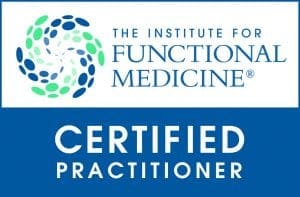The overweight and obesity epidemic has taken over the world, promoting the prevalence of chronic diseases. The common denominator of this problem is...
Category - Gut and Intestinal Health
Gut and Intestinal Health: The health of an individual’s gut determines what nutrients are being absorbed along with what toxins, allergens, and microbes are being kept out. The gut and intestines are directly linked to the health of the whole body. Intestinal health could be defined as optimal digestion, absorption, and assimilation of food being consumed. However, this is a job that depends on many other factors that can determine a healthy body. More than 100 million Americans have digestive problems and there are two of the top-selling drugs that are for digestive problems, and they run in the billions. There are more than 200 over-the-counter (OTC) remedies for digestive disorders and these can and do create additional digestive problems.
If an individual’s digestion is not working properly, the first thing is to understand what is sending the gut to be out-of-balance in the first place.
From low-fiber and high-sugars to high-calorie diets can cause all the wrong bacteria and yeast to grow in the gut and damages the delicate ecosystem in the intestines.
While overuse of medications that damage the gut or even block normal digestive function like acid blockers (Prilosec, Nexium, etc.), anti-inflammatory medication (aspirin, Advil, and Aleve), antibiotics, steroids, and hormones can cause gut dysfunction.
Undetected gluten intolerance, celiac disease or low-grade food allergies to foods such as dairy, eggs, or corn can even cause gut problems and if it is not treated can become chronic.
From chronic low-grade infections to toxins all the way to stress can cause the gut to become imbalanced and change the normal bacteria.
When patients go to see their primary care doctors, visits for intestinal disorders are among the most common trips. Most doctors do not recognize or know that digestive problems can wreak havoc in the entire body, thus leading to allergies, arthritis, autoimmune disease, rashes, acne, chronic fatigue, mood disorders, autism, dementia, cancer, and more.
By having a proper gut and intestinal health is absolutely central to a person’s health since it is connected to everything that happens in the body.
Western diet: Immune activation, Metainflammation and Chronic Diseases
How to Boost Tight Junction Integrity Through Nutrition?
Tight Junctions (TJ) comprise different proteins that bind to the actin cytoskeleton to provide barrier integrity to our gut lining. Indeed, TJs are...
Tight Junctions: Defective Intestinal Barrier and Pathological Conditions
Our main interaction with food, pathogens, and inflammatory signals is made through our intestinal barrier. Indeed, our gut epithelium is where the...
Innate and adaptive immunity responses often take the spotlight regarding the defense and protection against pathogens. Nevertheless, barrier tissues...
Ketosis and Microbiota: Healthy Symbiosis
The link between microbiota and different factors such as exercise, genetics, disease, body composition, and nutritional intake is undeniable...
Polyphenolic Modulation of Gut Microbiome and Cardiometabolic Disease
Insulin resistance is a problem that is strongly associated with obesity due to excess body fat and diabetes. However, growing evidence suggests that...
Detox and Dandelion’s Bioactive Compounds
Metabolic and chronic disorders have created a tremendous economic burden in developed and developing countries. The overproduction of reactive...
Liver health and function are tied to an intricate web that comprises the gut microbiome, absorption, transport, end products of metabolism, and...


















